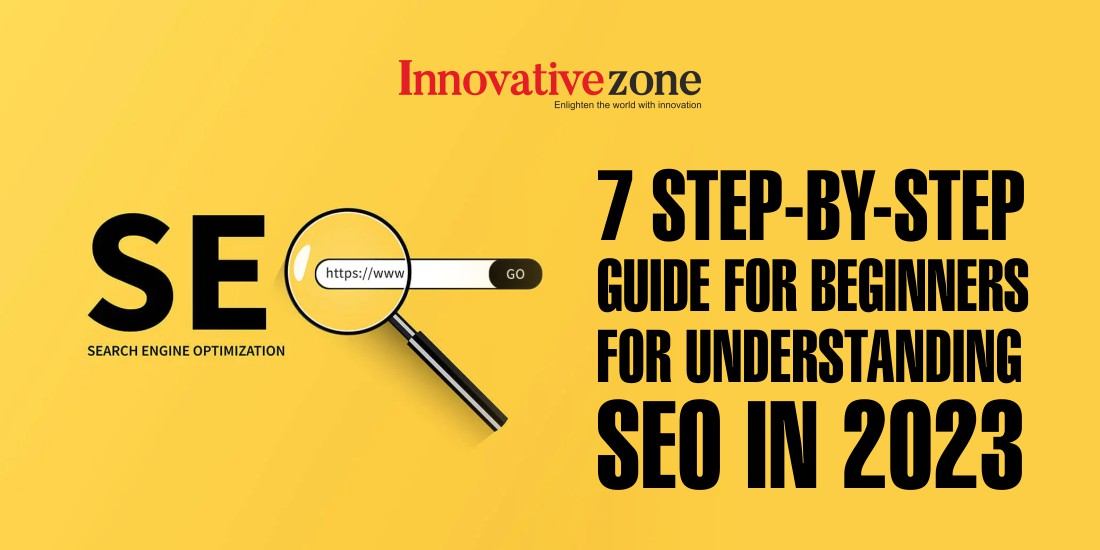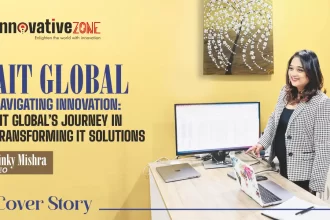7 Step-by-Step Guide For Beginners For Understanding SEO In 2023
Search Engine Optimization (SEO) is in simple language, a concept of digital marketing that can help your website rank higher in search engine results, drive organic traffic, and ultimately bring more leads to your business by improving online presence.
However, SEO can be an intimidating term for beginners. In this step-by-step guide, we will break down SEO into 7 easy steps to provide you with the foundation you need to get started.
What is SEO?
SEO stands for Search Engine Optimization. It’s the nothing but optimizing your website with a carefully curated strategy that helps it ranks higher in search engine results pages (SERPs) for relevant keywords.
In simpler terms, when someone searches for something on Google or another search engine, SEO is what helps your website appear near the top of the results.
Step 1: Keyword Research
Keywords are the building blocks of SEO. Your first step in SEO is to identify the keywords relevant to your website or business. Here’s how to do it:
- Brainstorm: Begin by making a list of words and phrases related to your website or business.
- Use Keyword Research Tools: There are several tools like Google Keyword Planner, SEMrush, and Ahrefs that can help you find keywords with high search volumes and low competition.
- Analyze Competitors: Look at your competitors’ websites to see what keywords they are targeting. This can provide valuable insights.
- Long-Tail Keywords: Don’t forget about long-tail keywords (more specific, longer phrases). They may have lower search volumes but can be easier to rank for.
Step 2: On-Page SEO
On-page SEO involves optimizing individual pages on your website. Here are some of the key aspects to put your focus on:
- Title Tags: Each page should have a unique, descriptive title that includes your target keyword.
- Meta Descriptions: Write compelling meta descriptions that entice users to click on your page in search results.
- Header Tags: Use H1, H2, H3, header tag to structure your content and make it easier for search engines to understand.
- Keyword Placement: Include your target keyword naturally in your content, headings, and image alt tags.
- Quality Content: Create high-quality, valuable content that satisfies the user’s intent. Google rewards informative and engaging content.
- Internal Links: Link to other relevant pages within your website to improve user navigation.
Step 3: Technical SEO
Technical SEO is where all technical optimization aspects of your website for search engines. This is very crucial as It ensures that search engine bots can crawl and index your site effectively. Key technical SEO elements to note to ensure everything is intact is:
- Site Speed: A fast-loading website is crucial for both user experience and SEO. Tools like Google PageSpeed Insights come into handy to check and improve your site’s speed to improve your seo status.
- Mobile-Friendliness: Ensure your website is responsive and works well on mobile devices.
- SSL Certificate: Secure your site with an SSL certificate to establish trust and improve rankings.
- XML Sitemap: Create an XML sitemap to help search engines discover and index your pages.
- Robots.txt: Use a robots.txt file to instruct search engine bots on which pages to crawl and which to avoid.
Step 4: Off-Page SEO
Off-page SEO refers to activities that take place outside your website but still impact your search engine rankings. The most important off-page SEO factor is building high-quality backlinks to your site. Here’s how to do it:
- Content Marketing: Create shareable, link-worthy content that other websites in your niche will want to link to.
- Guest Blogging: Contribute guest posts to authoritative websites in your industry, including a link back to your site.
- Social Media: Share your content on social media platforms to increase its visibility and the likelihood of it being shared.
Step 5: Local SEO (If Applicable)
If you have a physical business with a local presence, optimizing for local SEO is essential. Here’s what to focus on:
- Google My Business: Claim and optimize your Google My Business listing with accurate information, images, and reviews.
- Local Citations: Ensure your business information (name, address, phone number) is consistent across all online directories and platforms.
- Local Keywords: Use location-specific keywords in your content and meta tags.
Step 6: Monitoring and Analytics
SEO is an ongoing process. You need to monitor your efforts and adjust your strategy as needed. Here’s how to do it:
- Google Analytics: Don’t forget to install Google Analytics to track website traffic, user behavior, and conversions.
- Google Search Console: You can use Google Search Console to monitor how your site appears in Google’s search results and identify issues.
- Rank Tracking Tools: Use tools like SEMrush or Moz to track your keyword rankings and monitor your competitors.
Step 7: Stay Updated
The world of SEO is dynamic and constantly evolving over time. Search engines regularly update their algorithms, and new trends emerge.
To stay ahead, following SEO experts on social media and staying up-to-date with the latest blogs will be of great help.
You can choose from a digital marketing course in Calicut Provided by various practical digital marketing agencies.
Here are some additional insights and tips to help beginners further understand and succeed in their SEO efforts:
1. Quality Over Quantity
Whenever you are creating content for your website for SEO purpose, focus on producing quality content over quantity.
Search engines love well-researched, and informative content.
Avoid keyword stuffing (overusing keywords) as it can negatively impact your rankings and user experience.
2. User Experience Matters
Search engines also consider user experience factors. It is important to make sure your website is user-friendly and works well on mobile as well.
Loading page should be less than 3 seconds and everything should be easily accessible for the visitor making their overall user experience better.
3. Link Building Best Practices
While building backlinks is crucial, focus on quality links from reputable websites in your niche.
Avoid buying links or engaging in link schemes, as this can lead to penalties from search engines. Natural and organic link building is the most effective and safe approach.
4. Content Freshness
Updating and adding fresh content to your website can positively impact SEO. Consider regularly updating and repurposing older content to keep it relevant. Search engines often favor recent and updated information.
5. Local SEO Tips
Local SEO is vital for a business that is targeting an audience to a particular location. Encourage customer reviews on platforms like Google My Business, Yelp, and TripAdvisor.
6. SEO Plugins and Tools
If your website is built on platforms like WordPress, consider using SEO plugins like Yoast SEO or All in One SEO Pack. These tools can assist with on-page SEO tasks, including optimizing titles, meta descriptions, and more.
7. Long-Term Approach
If you are looking for SEO results in a short time, you are going to get disappointed because it is a long-term strategy and can take several months to see rankings and traffic.
Be patient and continue to refine your strategy based on data and results.
8. Avoid Black Hat SEO
Black Hat SEO techniques, such as cloaking, keyword stuffing, and hidden text, are unethical and can result in severe penalties, including being de-indexed by search engines.
Always follow white hat SEO best practices.
9. SEO and Social Media
Social media doesn’t directly impact SEO rankings, but you can use it to your benefit.
Sharing your content on social media can increase its visibility making more people visit your website and engage with your content.
10. Monitor Competitors
Regularly analyze your competitors’ websites and SEO strategies. Identify what keywords they are targeting, the type of content they create, and their backlink profile.
This can help you discover opportunities and stay competitive.
If you wish to become an SEO expert, choosing a practical digital marketing institute in Calicut would be the best idea as they are agency style institutes offering real time learning under the guidance of experts in SEO.
Must Read:-
- Top 10 Largest Oceans and Seas in the World
- Top 10 automobile companies in India 2023
- Top 10 Electrical Companies in India 2023
- Top 10 Real Estate Companies in India-2023
- Top 10 most awaited & upcoming Hindi web series 2023-24
- Top 10 Clothing Brands in India 2023
- Top 10 best cultures in the world-2023
- Top 10 best country to work and live in 2023
- Top 10 best country for education 2023
- Top 10 Most Followed Celebrities on Instagram 2023
- The Inspiring Success Story of Bear Grylls
- Top 10 Business Coaches in The World to Guide Entrepreneurs In 2023
- Top 10 movies based on True Stories you must watch before you die
- Top 10 Best Online Doctor Consultation Apps in USA








